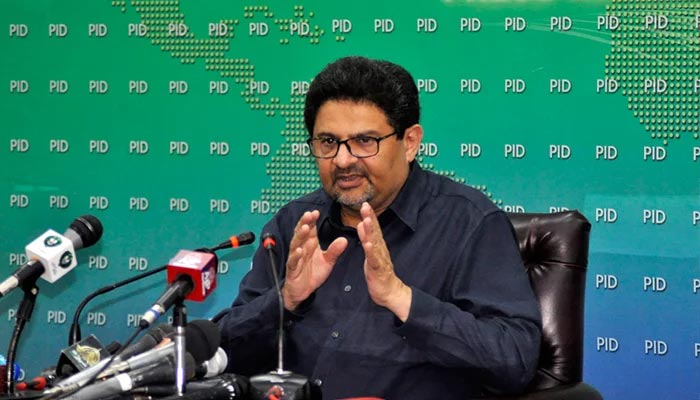Miftah Ismail vows Pakistan will weather economic storm with help of IMF loan
"Pakistan is absolutely going to make each and every debt and bond payment," Miftah assures nation
August 01, 2022

- Miftah Ismail assures nation country will meet bond, debt payments.
- "Pakistan, other emerging countries facing worst crisis," he says.
- He adds spike in domestic energy prices will reduce imports.
Federal Minister for Finance and Revenue Miftah Ismail Monday said Pakistan can come out of its current economic crisis without descending into default as progress has been made on the stalled International Monetary Fund (IMF) loan as well as spending cuts, Bloomberg reported Monday.
In a phone interview, the finance minister said: “With the commodity supercycle and Russia-Ukraine war, oil prices skyrocketing and gas going as high as ever been in history, Pakistan and other emerging countries have been facing the worst crisis.
“Nonetheless, Pakistan will weather the storm through the IMF bailout programme, the introduction of a significant tight budget, and by depressing the demand for imports."
Pakistan reached a staff-level agreement with the Washington-based lender on July 14 after months-long efforts to revive the programme.
According to the State Bank of Pakistan (SBP), Islamabad needs a total of $33.5 billion in the year through June 2023, while available financing stands at $35.9 billion for the period.
‘Everything is settled now’
Miftah said: “Everything is settled now. Pakistan is absolutely going to make each and every debt and bond payment.”
Sharjah Islamic Bank Head of Debt Capital Markets Ali Wahab said the firm received a scheduled coupon payment Monday for its holdings of Pakistan’s $1 billion Sukuk issued in January. “Hopefully, this will help in allaying the fears of investors,” he added.
In an emailed reply, the central bank told the publication that Pakistan’s Sukuk coupon payment has been executed and all debt repayments during this week are on track, including the one due on August 3.
The authority further said that all external debt repayments — principal and interest — are being executed on the due dates as per loan agreements.
It should be noted that the country reduced its imports by 35% to $5 billion in July, which will in turn help check the nation’s current-account gap. “The spike in domestic energy prices — by 50% to win the IMF bailout — will also reduce energy demand and imports that have been a strain on the currency,” Miftah said.
The Pakistani currency lost over 14% against the US dollar in July to end the last session of the month at 239.4 — the highest monthly slide since 1972.
Bloomberg reported that the rupee is among the worst currency decliners globally for the last month.
Pakistan’s rupee has overshot to the downside temporarily but is expected to appreciate in line with fundamentals over the next few months, the central bank and finance ministry said in a rare joint statement released near midnight on July 31.











